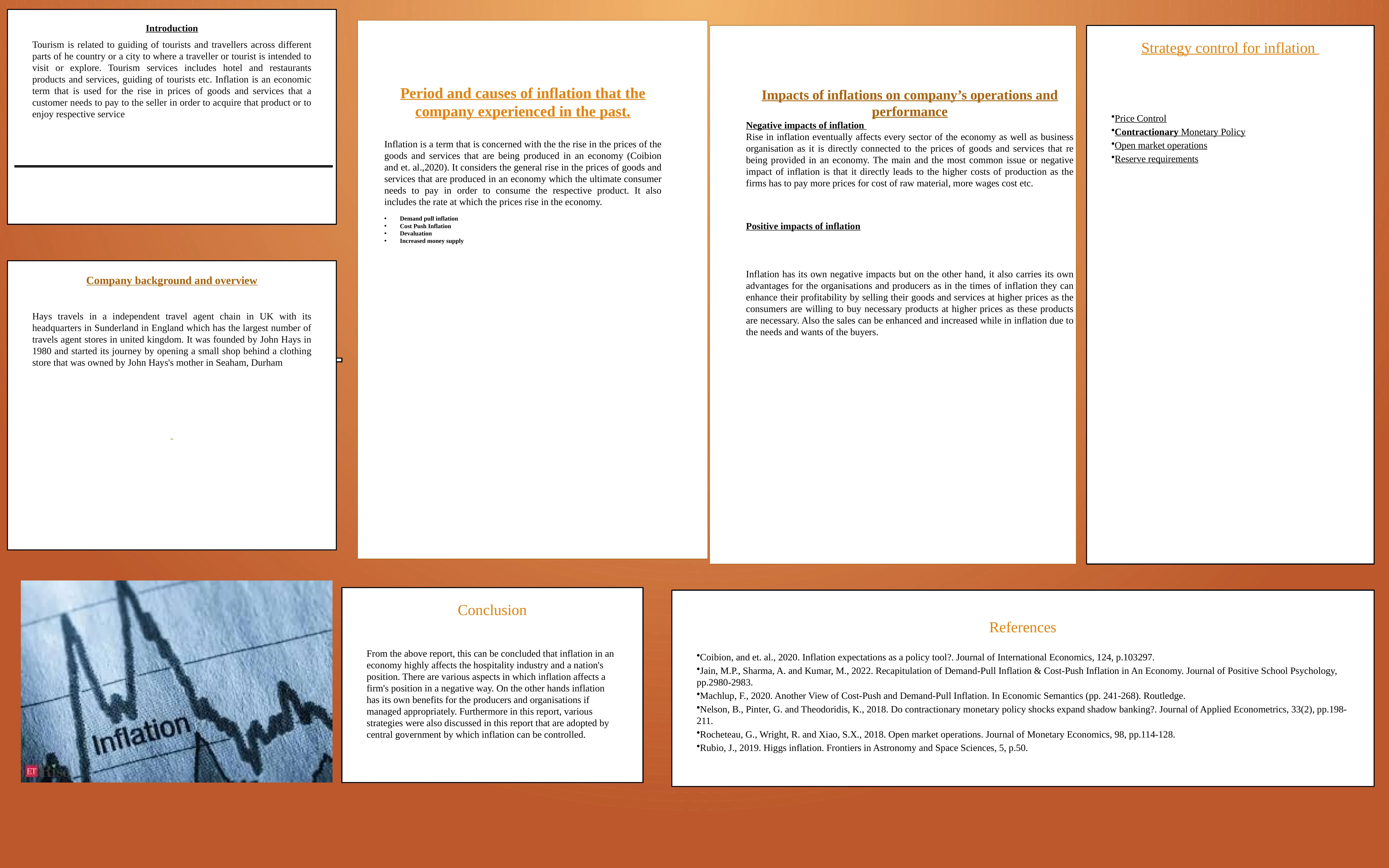Analyzing Inflation Effects on Hays Travels in the Tourism Industry
VerifiedAdded on 2023/06/05
|2
|723
|80
Report
AI Summary
This report examines the impact of inflation on the tourism industry, using Hays Travels as a case study. It discusses the causes of inflation, including demand-pull and cost-push factors, as well as the positive and negative impacts on company operations and performance. Strategies for controlling inflation, such as price controls, contractionary monetary policy, and open market operations, are also explored. The report concludes that while inflation can negatively affect firms by increasing production costs, it can also offer opportunities for enhanced profitability if managed effectively. The analysis is supported by references to relevant academic literature. Desklib provides access to similar reports and study resources for students.
1 out of 2






![[object Object]](/_next/static/media/star-bottom.7253800d.svg)